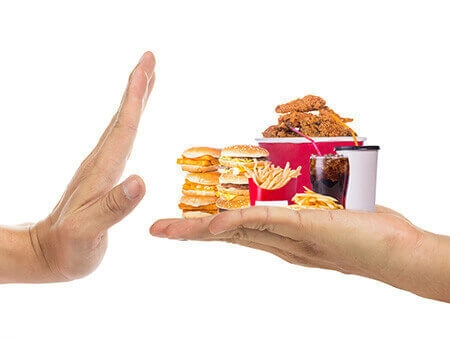Home/Wellness Zone/Sakra Blogs
9th Oct, 2015

Trans fat raises your LDL ("bad") cholesterol and lowers your HDL ("good") (HDL)cholesterol.
Find out more about trans fat and how to avoid it.
Trans fat is considered by many doctors to be the worst type of fat you can eat. Unlike other dietary fats, trans fat — also called trans-fatty acids — both raises your LDL ("bad") cholesterol and lowers your HDL ("good") cholesterol.
A high LDL cholesterol level in combination with a low HDL cholesterol level increases your risk of heart disease, the leading killer of men and women. Here's some information about trans fat and how to avoid it.
What is trans fat?
Some meat and dairy products contain small amounts of naturally occurring trans fat.But most trans fat is formed through an industrial process that adds hydrogen to vegetable oil, which causes the oil to become solid at room temperature.
This partially hydrogenated oil is less likely to spoil, so foods made with it have a longer shelf life. Some restaurants use partially hydrogenated vegetable oil in their deep fryers,because it doesn't have to be changed as often as do other oils.
Trans fat in your food
The manufactured form of trans fat, known as partially hydrogenated oil, is found in a variety of food products, including:
Baked goods. Most cakes, cookies, pie crusts and crackers contain shortening, which is usually made from partially hydrogenated vegetable oil. Ready-made frosting is another source of trans fat.
Snacks. Potato, corn and tortilla chips often contain trans fat. And while popcorn can be a healthy snack, many types of packaged or microwave popcorn use trans fat to help cook or flavor the popcorn.
Fried food. Foods that require deep frying — french fries, doughnuts and fried chicken — can contain trans fat from the oil used in the cooking process.
Refrigerator dough. Products such as canned biscuits and cinnamon rolls often contain trans fat, as do frozen pizza crusts.
Creamer and margarine. Nondairy coffee creamer and stick margarines also may contain partially hydrogenated vegetable oils.
Reading food labels
If a food has less than 0.5 grams of trans fat in a serving, which is regarded as safe level, the food label can read 0 grams trans fat. This hidden trans fat can add up quickly, especially if you eat several servings of multiple foods containing less than 0.5 grams a serving.
When you check the food label for trans fat, also check the food's ingredient list for partially hydrogenated vegetable oil — which indicates that the food contains some trans fat, even if the amount is below 0.5 grams.
How low should you go?
Trans fat, particularly the manufactured variety found in partially hydrogenated vegetable oil, appears to have no known health benefit. It is recommended that the intake of trans fat be kept as low as possible.
The Food and Drug Administration (FDA) has determined that partially hydrogenated vegetable oil is no longer "generally recognized as safe" and should be phased out of the production of food over the next several years.
How trans fat harms you
Doctors worry about trans fat because of its unhealthy effect on your cholesterol levels — increasing your LDL and decreasing your HDL cholesterol. There are two main types of cholesterol:
Low-density lipoprotein (LDL). LDL, or "bad," cholesterol can build up in the walls of your arteries, making them hard and narrow.
High-density lipoprotein (HDL). HDL, or "good," cholesterol picks up excess cholesterol and takes it back to your liver.
If the fatty deposits within your arteries tear or rupture, a blood clot may form and block blood flow to a part of your heart, causing a heart attack, or to a part of your brain,causing a stroke.
What should you eat?
Don't think a food that is free of trans fat is automatically good for you. Food manufacturers have begun substituting other ingredients for trans fat. Some of these ingredients, such as tropical oils — coconut, palm kernel and palm oils — contain a lot of saturated fat. Saturated fat raises your LDL cholesterol.
In a healthy diet, 25 to 35 percent of your total daily calories can come from fat — but saturated fat should account for less than 10 percent of your total daily calories.
Monounsaturated fat — found in olive, peanut and canola oils — is a healthier option than is saturated fat. Nuts, fish and other foods containing unsaturated omega-3 fatty acids are other good choices of foods with monounsaturated fats.
Enquire Now
